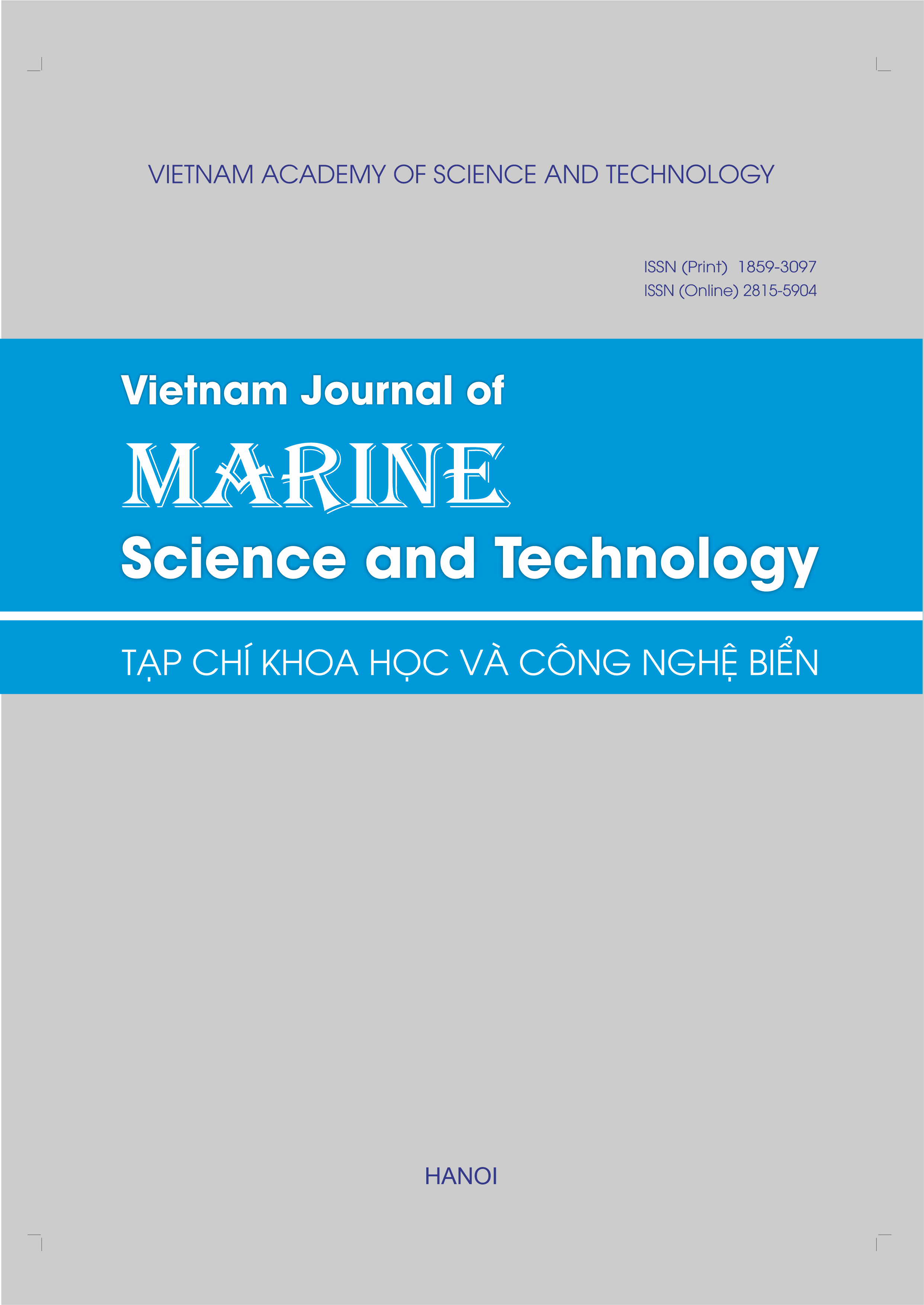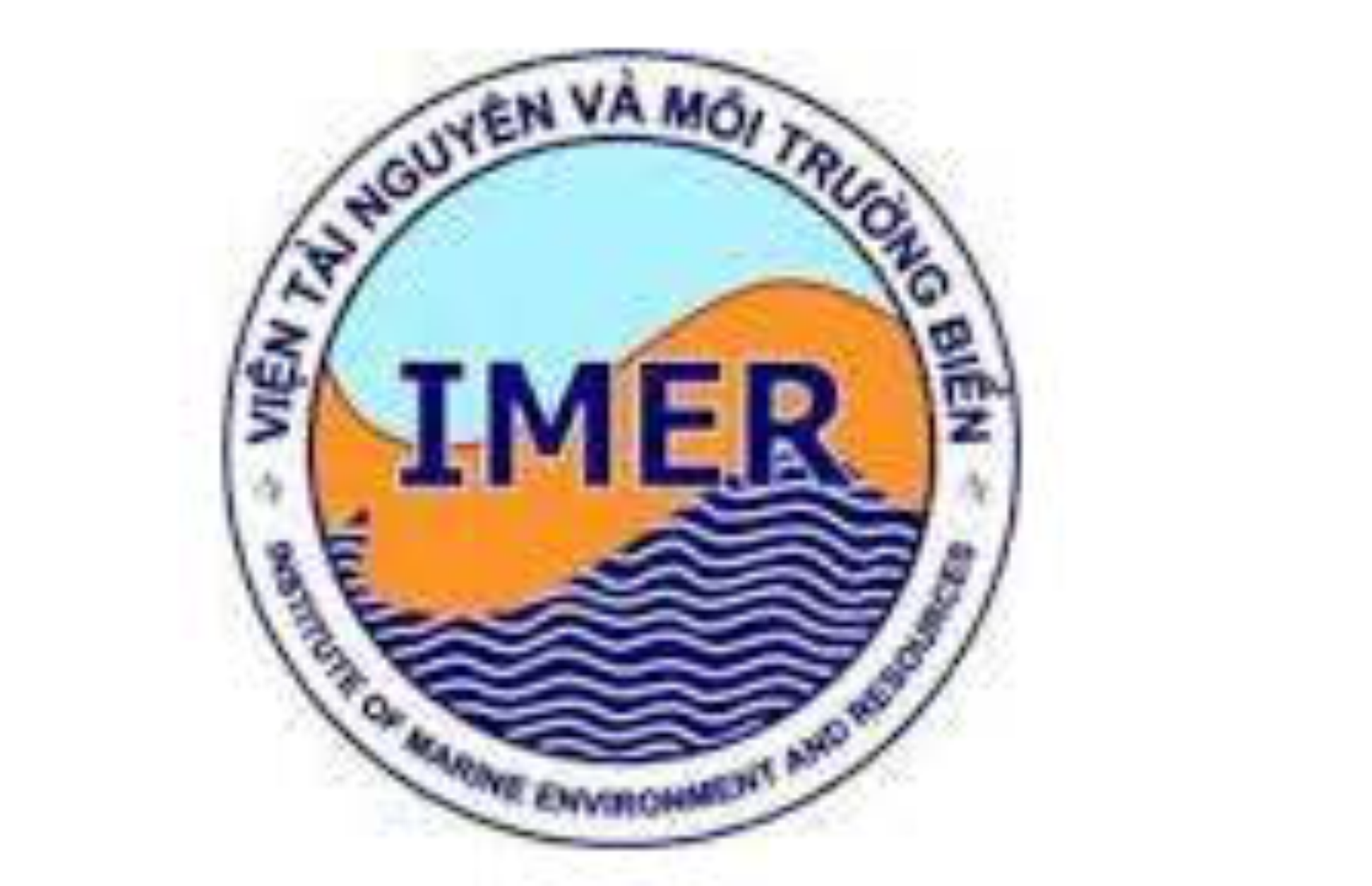Bleaching of coral in Nha Trang, Ninh Thuan, Con Dao and Phu Quoc islands in June–July 2019
Author affiliations
Keywords:
Coral bleaching, Con Dao, Phu Quoc, Nha Trang, Ninh Thuan.Abstract
The studies on coral bleaching were conducted at 21 sites of 4 reef areas in Southern Vietnam, using point transect technique in June–July 2019. Cover of hard corals in the selected sites was quite high with the average values of 65.6 ± 18% % in Con Dao islands, 58.7 ± 26.2% in Ninh Thuan coastal waters, 55.9 ± 17.8% in Phu Quoc island but lower in Nha Trang bay (22.8 ± 15.9%). Soft corals were not abundant with the highest cover in Nha Trang bay (4.73 ± 5.5%) and the lowest in Ninh Thuan (0.16 ± 0.3%). Hard corals were most impacted in Nha Trang bay with 39.5 ± 8.1% bleached, followed by Ninh Thuan reefs (32.9 ± 13.3%), Con Dao Islands (25.0 ± 11.1%) and least affected in Phu Quoc island (7.3 ± 9.05%). For soft corals, ratios of bleached corals were 79.4%, 65.8% and 23.8% in Con Dao islands, Nha Trang bay and Ninh Thuan reefs respectively. No bleached soft coral was recorded in Phu Quoc. At the genus level, Acropora corals were severely affected in Nha Trang bay, Ninh Thuan reefs and Phu Quoc island but not impacted in Con Dao islands. The Porites, Montipora, Millepora genera were quite vulnerable in all sites but no bleaching was observed for Galaxea and Diploastrea genera.
Downloads
Metrics
References
[1] Monroe, A. A., Ziegler, M., Roik, A., Röthig, T., Hardenstine, R. S., Emms, M. A., ... and Berumen, M. L., 2018. In situ observations of coral bleaching in the central Saudi Arabian Red Sea during the 2015/2016 global coral bleaching event. PLoS One, 13(4), e0195814. https://doi.org/10.1371/journal.pone.0195814.
[2] Tuan, V. S., 2002. The corals at Con Dao Archipelago(South Vietnam): Before, during and after the bleaching event in 1998. In Proceedings of the Ninth International Coral Reef Symposium, Bali, 23–27 October 2000, (Vol. 2, pp. 895–899).
[3] Ben, H. X., Vo, S. T., Hoang, P. K, 2008. Mass mortality of corals and reef living features at Con Dao archipelago (Vietnam) in October 2005. Vietnam Journal of Marine Science and Technology, 8(1), 59–70.
[4] Long, N. V, Ben, H. X., Hoang, P. K., and Tuyen, H. T., 2010. Status trend and prediction of biodiversity of coral reefs in the coastal waters from Da Nang to Binh Thuan. The Science Conference celebrates the 35th anniversary of the Vietnam Academy of Science and Technology. Hanoi, Oct. 2010. pp. 258–292. (in Vietnamese).
[5] Long, N. V, Ben, H. X., Hoang, P. K., and Tuyen, H. T., 2010. Biodiversity dynamics trend of coral reefs in Phu Quoc Marine Protected Area. National Conference of Marine Science and Technology. Biological Committee, pp. 1–39. (in Vietnamese).
[6] Long, N. V, Vo, S. T., and Hoang, P. K., 2013. Temporal change in coral cover and resilience of coral communities in Nuichua marine protected area. Science and Technology Journal of Agriculture & Rural Development, 218–223. (in Vietnamese).
[7] https://coralreefwatch.noaa.gov/ (Accessed June 06, 2019).
[8] Hodgson, G., & Waddell, S., 1997. International reefcheck core method. University of California at Los Angeles.
[9] Veron, J. E. N., 2000. Corals of the World. 3 Vols. M. Stafford-Smith. Australian Institute of Marine Science Monograph Series.
[10] Raymundo, L. J., Burdick, D., Hoot, W. C., Miller, R. M., Brown, V., Reynolds, T., ... and Williams, A., 2019. Successive bleaching events cause mass coral mortality in Guam, Micronesia. Coral Reefs, 38(4), 677–700. https://doi.org/10.1007/s00338-019-01836-2.
Downloads
Published
How to Cite
Issue
Section
License
Copyright (c) 2021 Vietnam Journal of Marine Science and Technology

This work is licensed under a Creative Commons Attribution-NonCommercial-NoDerivatives 4.0 International License.





